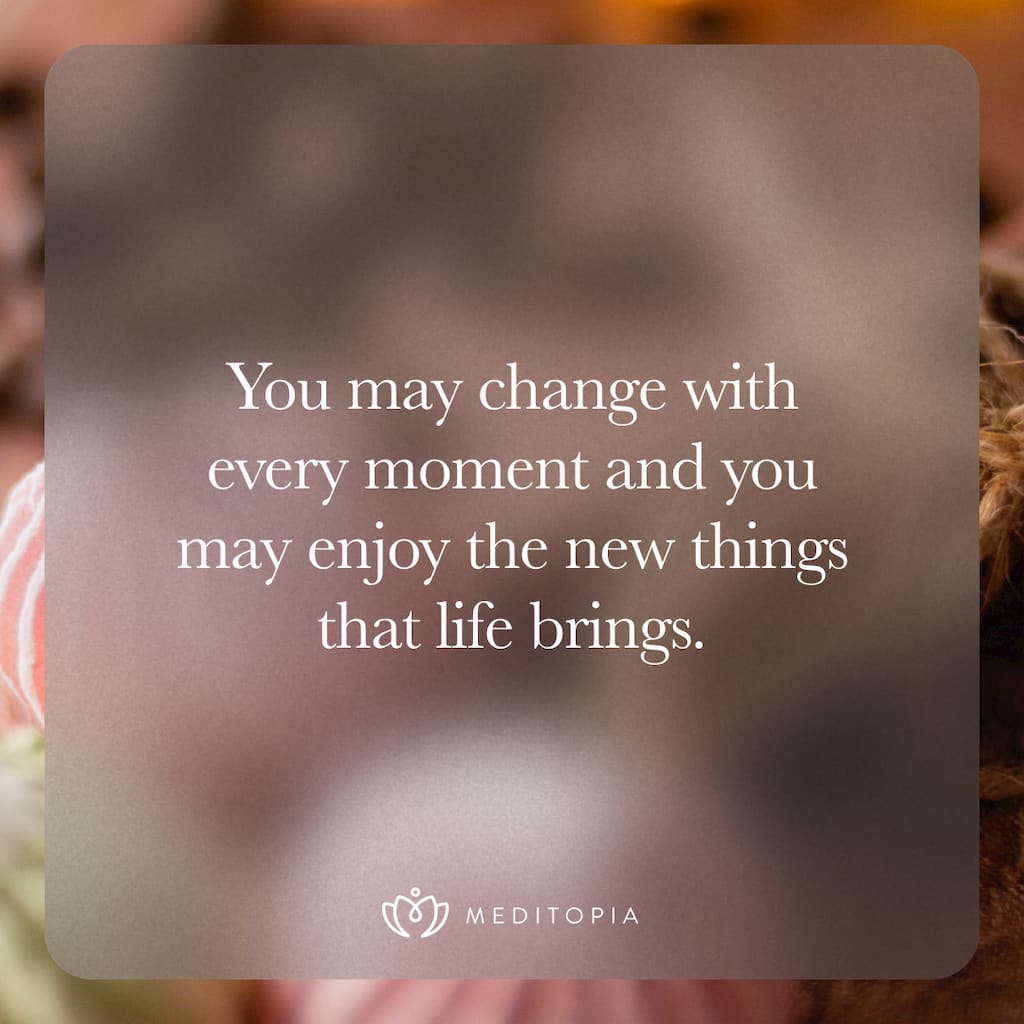Processing Your New Year’s Resolutions

Contents
Shifts and changes like a new year, a birthday, maybe a new house, can be great opportunities for us to make new beginnings, decisions, and changes in our lives. During these stages of change, we may experience a great sense of hope, strength, and determination to realize our dreams and desires. We may feel as though a clean slate appears symbolically in our minds, beckoning us to close doors on the past, opening up to new possibilities now and in future. The beginning of a new year is often one of those times we may feel a renewed energy around examining what we want out of life.
Here is our new year’s resolution quote:

Although we may make our New Year’s resolutions with great hope and enthusiasm, we may also find it difficult to follow through with these resolutions after the first few months. Setting goals can be easy, but sometimes the execution presents challenges. Being unable to stick to our goals can leave us with feelings of defeat, disappointment, and frustration. Those resolutions that brought with them a fresh sense of newness may turn stale when we fall short of our expectations. So, what is the solution? How do we avoid letting ourselves down?
We can start by reframing how we think about goal-setting, resolutions, and change. Last year was difficult on both a personal and global scale for all of us in different ways. Even still, there was joy. Two things can be true at the same time. We can feel both pain and excitement just as we can experience fear and calm. We exist in multitudes and how we approach a new year cannot, therefore, be a formula, but rather an opportunity to step into the messy authenticity of our truest selves.
One strategy that may be helpful as we enter the new year is to reflect. What practices of self-care served you during 2020? How did you nourish yourself? Where and how did you experience pain? These are just some of the questions you can begin asking yourself to unpack how you’re feeling. Sometimes a solitary journal practice can feel cathartic. Or, maybe you thrive when you can process your emotions with the support of close friends. What’s most meaningful for you? How did you identify and express your needs this past year? How do you want to meet your needs moving into 2021? When we are more aware of our own needs and habits of care, we are better able to ground ourselves in the present and carry those practices with us into the future.
Knowing Your Own Boundaries
When we hear the word, “boundary,” we may call to mind images of barriers or an emphasis on restriction. When we’re talking about personal boundaries, however, we’re clarifying our own needs, what we will and will not accept. We may feel an urgency to produce a litany of goals when we’re being pummeled by advertisements advocating for resolutions and changes. Ask yourself: to what, to whom, and in service of what am I giving my energy to this year? Then, a step further: why? If you run yourself ragged at the behest of societal pressure to perform, you’re not going to be serving yourself and you may extend past your own personal boundaries. Our boundaries exist to keep us safe, to help us form more meaningful connections, and to remind us of our purpose. Maybe that means our list of goals amounts to one small thing we’d like to accomplish, maybe we’re just trying to survive, or maybe you’re tackling big projects in this next year. Knowing what we have the energy for, what we are willing and unwilling to do in service of others and ourselves, will help us to approach what we want to do in the new year’s authentically and realistically.
Do Your Research
Much as new things may excite us, they can also be full of unknowns. Ambiguity can be challenging for us to navigate, making the idea of goal-setting difficult. Taking slow steps to dig deep about what you want to do in the new year’s can be helpful. Rest in the process of conceiving the idea rather than its immediate implementation. Do your research. If you want to start a practice of journaling, what items do you need? What kind of pen is your favorite pen to write with? Do you prefer lined or unlined pages? Identifying the materials that best fit your needs, whatever you endeavor to do, can help you more easily incorporate that practice into your daily life.
Let Your Past Guide Your Present
While incorporating new things into our lives can be tempting, recovering lost ground and grieving missed opportunities is important for us as well. What did you miss out on in 2020? How are you giving yourself space to grieve that loss? Sometimes resting in the feelings of discomfort can help us to see the way forward, to clear the cobwebs from our mind. Upon reflection, is there a way you’d like to see those missed opportunities recreated in this next year? Making New Year’s resolutions doesn’t have to be rooted in the creation of something new. Rather, it can be about recapturing an experience you wanted to have in the year prior as your current self.
Use Positive Language
The way we talk to ourselves is powerful. If you’re considering New Year’s resolutions, make sure to ground your language in the positive. For example, instead of saying, “I shouldn’t get distracted,” or, “I can’t eat those things,” try saying, “I will focus on my mental health,” or, “I will nourish my body” instead. This shift can have a great impact when we’re trying to accomplish anything, big or small.
Write It Down

Writing about how we’re feeling and going into detail about how we’re approaching this new year can help to move your resolutions from a cognitive to a concrete level. Naming how we’re feeling and what we hope for on the page creates a space for mental clarity and to reflect on potential obstacles we may face. When considering the setbacks that may occur, you can also begin to think about how you’ll work through them and be present with yourself through that process. Remember, being flexible and gentle with ourselves as we think about this next year is so crucial to our personal growth. Perfection doesn’t exist and life throws things at us that we will be unprepared for and that is okay. Leave it all on the page as you think through your plans, if any, for what you want to achieve in the new year’s and forgive yourself as you do or do not achieve them.
Navigating Motivation
It can, at times, be motivating to contemplate how your resolutions will take shape in the next year. On the other hand, perhaps you’re finding it difficult to muster the motivation to achieve. During those moments, we can reach for external support. Maybe that’s calling a close friend or trusted confidant. Or, perhaps you reward yourself for an attempt, however successful, to buoy confidence in yourself.
Though it may seem simple, altering or shaping your surroundings in accordance with your goals can be quite effective. For example, you can post photos and affirmations in various parts of your room or around your space. These small changes can serve as reminders of what we want to do, our boundaries, our practices of self-care, our mantras, and more.
The New Year cracks the door open for us to become more aware of ourselves, reflect upon our experiences, and assess what kind of life we want to be living. How we respond to this invitation lives in how we create our own boundaries and make decisions that feel right to us.
Let this next year be filled with joy, where we can step further into our purpose as our most authentic selves!
Translator: Ebru Peközer




